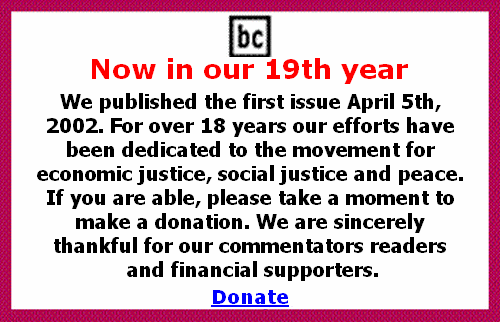|
On the Friday before Labor Day, the
Bureau of Labor Statistics released its monthly report, The
Employment Situation. It reported good news – the unemployment
rate dropped to 8.4 percent, higher than in February before the
pandemic hit. We added 1.4 million jobs last month, the highest gain
since the corona recession began. But while this is progress, it is
no cause for celebration. The Black unemployment rate remains
double-digit and has not dropped as rapidly as the overall rate or
the white rate, 7.3 percent. Eleven million fewer people held jobs in
August than in March. And the “rebound” is not spread
evenly across populations. The top 10 percent have already recovered.
The bottom 40 or 50 percent are still struggling.
Democratic
Vice-Presidential nominee Senator Kamala Harris told CNN that “one
in five mothers is describing her children as hungry.” The
lines at the food banks have not gone down, and in some communities,
they are getting longer. Once thought to be relatively immune to the
virus, small-town America is now being hit, and forcefully. The
challenge is that there are fewer hospitals or health care facilities
in rural areas. Economic recovery is dependent on the development of
a COVID vaccine, which the current President says will be ready in
October or November. More realistic people, such as Dr. Anthony
Fauci, say a vaccine might not be ready until next summer or even
later.
The
bottom line is that the macro indicators may show some progress, but
a deeper dive is far less optimistic. Hundreds of thousands of small
businesses, including 40 percent of Black-owned companies, have
closed, resulting in permanent job loss. Some of the hardest-hit
industries include the leisure industries - travel, dining, and more.
Women, especially women of color, heavily populate some of these
industries. While COVID hit women of color harder than others,
medical recovery will not make these women whole.
The
economy will not regain its position from early March. Indeed, the
slight comeback in leisure industries has been partly a function of
people enjoying safer, outdoor dining. The colder it gets, the more
likely it is that people will choose to pass up dining out in favor
of eating at home. People bought more groceries between March and
August, not wanting to risk the possibility of contagion. Many have
cautiously begun to eat out again, but restaurants lose money when
they reduce seating because of social distancing.

By
mid-September, we will know whether the Labor Day weekend has sparked
another COVID outbreak. And if there is another outbreak, count on
the economy to slow again. Congress could at least prevent some of
this if the Senate passed the HEROES (Health and Economic Recovery
Omnibus Emergency Solutions) Act, which would extend unemployment
insurance, provide relief for cities and states, and provide money
for schools. The HEROES legislation has been caught in partisan
drama, with a bipartisan group of Congressional representatives
passing it, but with Senate Majority leader Mitch McConnell failing
to even put the legislation up to a vote. Some Republicans dispute
the need for the HEROES Act because of the latest unemployment rate
data. But many states and local jurisdictions will lay off public
servants – teachers, police officers, sanitation workers,
transportation workers, health care workers, and others, pushing the
unemployment rate back up.
The
August Employment Situation report has more good news than bad. It
indicates that for the fourth month in a row, things are improving.
But this improvement is not enough, and it could be much better if
our legislators would offer some assistance, especially to those at
the bottom. Even though 45 has made the economy his issue, repeatedly
proclaiming that he created “the best economy in the world”
until COVID, his inability to grasp the many ways that COVID will
continue to plague the economy raises issues about his sagacity and
discernment.
Don’t
celebrate the rebound yet. Don’t stop the pressure either. The
Senate must pass the HEROES Act or face the consequences. If we want
economic recovery AND economic justice, we must vote.
|

